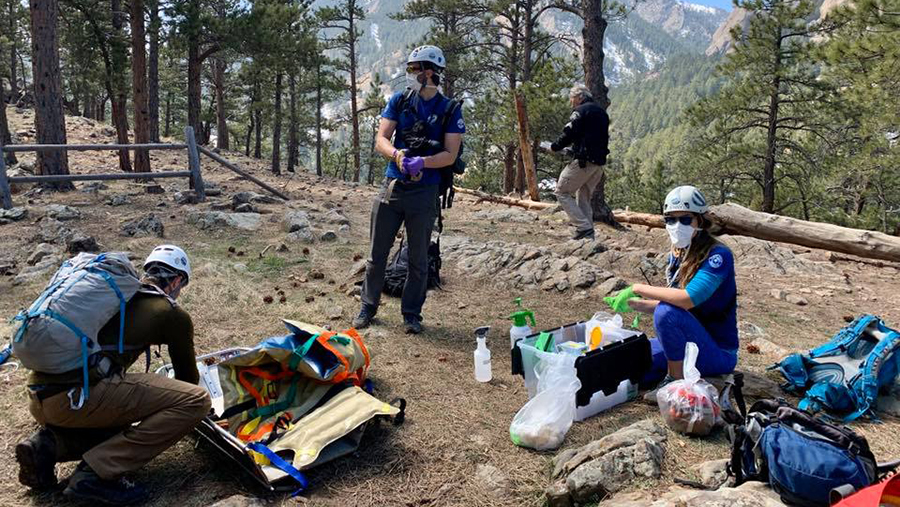Money and Computing
 Stateline: Search and Rescue Teams, Already Stretched Thin, See Surge in Calls
Stateline: Search and Rescue Teams, Already Stretched Thin, See Surge in Calls
Nearly all search and rescue missions in the United States are handled by volunteer teams, who mostly pay for their own equipment and work under a patchwork of guidelines and government oversight that can vary widely by state. The pandemic has led some older and higher-risk members to stay home, while others who have lost work or changed jobs no longer have the money or flexibility to deploy. “We've been very taxed,” Cashin said. “When COVID came out, I really thought our rescues were going to drop through the floor. But we're actually having a record year at this point, with a diminished capacity to respond. It was like the floodgates opened. It's been rescue after rescue after rescue, and it's not stopped.” In response, lawmakers in several states are considering proposals ranging from providing state funding for programs and workers’ compensation insurance for volunteers to charging people for their rescues. more »
 Consumer Financial Protection Bureau Takes Action Against Student-Loan Debt-Relief Business and Its Owners For Taking Illegal Advance Fees
Consumer Financial Protection Bureau Takes Action Against Student-Loan Debt-Relief Business and Its Owners For Taking Illegal Advance Fees
The Bureau’s complaint, which was filed in federal district court for the Southern District of Florida, alleged that from 2016 through October 2019, the defendants used telemarketing campaigns to convince more than 7,300 consumers to pay up to $699 in fees to file paperwork to reduce or eliminate their monthly payments for their federal student loans, through loan consolidation, forgiveness, or income-driven repayment plans. The US Department of Education, however, offers these options to student loan borrowers for free. more »
 Rose Madeline Mula Writes: Addicted to Amazon
Rose Madeline Mula Writes: Addicted to Amazon
Rose Madeline Mula writes: My other impulse purchases on Amazon include a string of mini, solar-powered lights to brighten my quarantined balcony; a label maker (which I have used to make two labels since buying it a year ago); a roll-up keyboard (in place of the Steinway I can’t afford and have no room for) which I immediately rolled up and put in a drawer before plinking even one melody; a five-pound bag of gum drops (yes, five pounds!); essential oils (which were certainly not essential); make up (too little, too late), and a garden kneeler. No, I don’t have a garden. I live in a third-floor condo. But I’m hoping it will help me get up when (not if) I fall so I don’t have to call the firemen (though, actually, their visits are the highlight of my social life). more »
 To Become a Citizen After Birth, You Must: Apply For “derived” or “acquired” Citizenship Through Parents; Apply for Naturalization
To Become a Citizen After Birth, You Must: Apply For “derived” or “acquired” Citizenship Through Parents; Apply for Naturalization
Naturalization is the process by which U.S. citizenship is granted to a foreign citizen or national after he or she fulfills the requirements established by Congress in the Immigration and Nationality Act (INA).
For more information, see USCIS Policy Manual Citizenship and Naturalization Guidance. Most naturalization applicants are required to take a test on: English; Civics (U.S. history and government). For more information, visit our Naturalization Test page. Get study materials from the Citizenship Resource Center. more »






